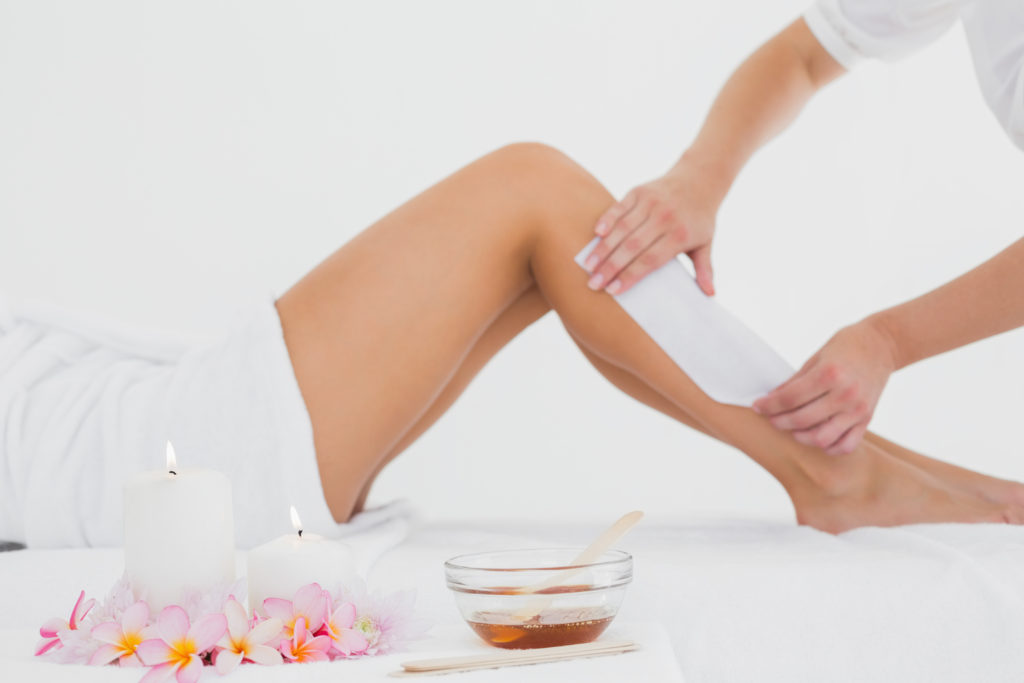Lying on a bed with someone pouring hot wax onto your nether region is never the most relaxing experience. Especially when they rip it off again, pulling your hair out by the roots. And as I’ve discovered in excruciating detail, if you’re brave enough to have waxing done in a developing country, it doesn’t always go to plan.
One time, in Kathmandu, I visited a day spa in a popular tourist area. The bikini wax itself was fine, just agonizingly slow as the woman tackled what felt like a tiny postage stamp-sized area each time. Then I took a chair and she prepared to ‘thread’ my upper lip. For those who don’t know about threading, my advice is: keep it that way. It’s a common alternative to waxing, particularly for delicate areas on the face (eyebrows, lip, etc.), which is popular in Asia, including Nepal. It involves a doubled-over piece of cotton thread which pulls hair out as it is twisted and rolled over the skin. It hurts and in the wrong hands is about as accurate as a toddler driving a snow plough.
Sitting in that chair, I desperately tried to fold my lips inside of each other to protect them. But the lady kept catching edges of skin in the string, slicing off the skin along with any hair. At one point, she confessed, “Oh, miss, some of your lip came out, sorry.” I paid and left with wads of tissue stuck to my mouth.
Visiting a different venue in Kathmandu, I tried making small talk to distract from the pain. Fancying myself an intrepid foreign correspondent with the advantage of being able to enter women-only areas, I asked whether many local women waxed down there. I waited for the mysteries of female beauty in this exotic country to be revealed. “Oh no, women don’t do that here,” she said. “It’s considered a private area.” And there it was. I was the loose Western woman who had half undressed so that a local could apply wax to my private area – something that Nepali women would never think of doing.
Another time, in Beirut, I practically needed counselling after the trauma of a waxing session. I don’t know exactly what was different about the technique or the wax that day. A monstrous hangover probably didn’t help. But anyone in the booth next door would have thought I was being punched in the stomach, I was letting out such loud gasps of air.
In Islamabad, Pakistan, I virtually had to set aside a full day for each visit because the women in the day spa took such pride in their work. Picture a huge white circular light, like those used in gynaecological exams, lowered and aimed squarely between your legs. And the woman’s face within an inch of your pelvic bone, scanning the surface and stretching your skin to reveal any errant hairs. I swear her intensity scared away anything that was even thinking about growing there for at least the next year.
But one of the worst encounters was on a brief stopover in Thailand, where I was trying to relax after four months working on the earthquake response in Nepal. I thought tourists in Thailand would commonly have these treatments, so the staff would be familiar with the technique. I thought wrong.
For what seemed like an eternity, the woman was desperately trying to lift the wax, but she couldn’t get enough of a grip to tear it off. She valiantly tried one side, then the other side. One direction, then the other direction. Yanking each time at individual hairs around the edge of the wax strip. One. By. One.
I was near my limit and my legs were shaking. Then she pulled out a pair of scissors and brandished them in the air. At that point my hands flew down, as if I’d been caught in public with my pants down. I stood up, got dressed – over the wax – and fled back to my hotel where I gingerly removed everything in a hot shower.
I’ve been asked the obvious question: ‘Why bother, if it hurts so much?’ And the answer is, ‘It’s not you, it’s me.” It’s one of my own personal rituals that I’ve followed my entire adult life. It makes me feel feminine and clean and, perhaps strangely, even organised. Of course you can analyse society’s pressure on women to be miraculously hair free. And when I’m somewhere like New York or Sydney, I certainly complain about how much these services cost women every year.
But in a developing country, when you’re far from home and in a stressful environment, hearing people’s upsetting stories of poverty or brutality; or living with security threats or earthquake aftershocks shaking your building, you don’t have time to dissect your home country’s social attitudes. You simply find a way to maintain your own little personal routines.
Whether it’s hair removal, having a pedicure or a massage, visiting a public pool, or sitting in a coffee shop, these transported habits bring moments of escape, familiarity or calm. These small indulgences can make a big difference. Even if part of your lip has to grow back afterwards.



 Little personal routines can help you cope with living and working in a developing country.
Little personal routines can help you cope with living and working in a developing country. I was not this relaxed for any of the experiences in this story.
I was not this relaxed for any of the experiences in this story. An ad I saw for a women’s beauty salon in Ramallah, Palestine.
An ad I saw for a women’s beauty salon in Ramallah, Palestine. If available, hotel or embassy pools are popular with Western aid workers
If available, hotel or embassy pools are popular with Western aid workers